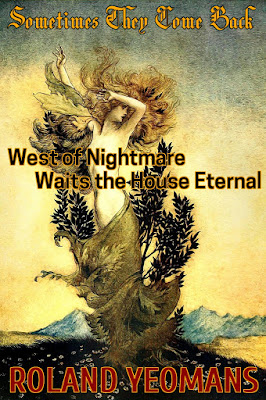FIND OUT THIS MAY 2nd
With the Release of the HERO LOST ANTHOLOGY
Amazon
Now,
Some Answers from Renee Cheung
What makes a person a lost soul?
It’s a deep question.
To answer that question, perhaps it is first easier to define the opposite.
To not be lost is to know thyself.
It comes back to the idea of identity.
We all have a
sense of identity, a sense of self, a way to define on a deeper more intrinsic
level what we see in the mirror every day.
That sense of identity is a result
over years of formation, from archetypes that we appropriate and anchor
ourselves with, to roles we assume,
be it a developer, a rare blood carrier.
So to become a lost soul then is to in some way, lose
that identity.
You see it all the time in many stories and in fact,
it is a
source of conflict that many excel in telling.
Sometimes it’s literal -
characters that have lost their memories, while others never having the
knowledge needed to help form an identity
(for example, not knowing who one’s
parents were or where they were from).
However, some other form of lost souls are less
literal -
they thought they were one thing, but really they were another, or
their actions contradict their identity.
Mind you, I don’t believe that at that
very moment, they become lost.
Rather, they become lost souls when they wake up
to what is happening and are forced to confront the contradiction.
You weren’t really expecting any less of an analytical
answer from a computer scientist cum author, were you?
Well that leads us to the last two questions -
losing
our way and coming back to ourselves.
I’ve alluded to the answer to the former
already. When a person (using the term loosely to not discriminate against any
non-human characters)
acts contradictory to their programming, if you will,
they become progressively more and more lost. One action heaps on another and
the effect snowballs.
In her mind, she is on the side of right, a councilwoman who
is trying to do good by her city.
But when circumstances and her own choices push her more and
more towards a life of crime, she became crazed, lost. (Is that considered a
spoiler?)
And on purpose, I wanted to pick this antagonist instead of
a hero because I think there is a difference between “finding our way back” and
becoming good.
Towards the end, Mariah accepted who she was, a woman who
would do anything to get her way and shape the city in her own image.
In other words, she owned up to her actions.
In the process, she formed and accepted a new identity and I
think in that sense, she found her way back to herself. I am very excited to
see how that character develops! (Come on Season 2!)
Now returning to the second question about legends!
Perhaps this is not the best definition in the world,
or even a right one but the bard in me has a desire to define a person that
becomes a legend by leaving a good story behind.
It may be a story they wrote or told (is Shakespeare not
legendary in his own right?) or perhaps their deeds become that good story. And
now take that, exaggerate and blur the details over the testament of time and voila,
recipe for a legend!
Following Erika’s post on a Will Smith kick, I think of the movie “I
Am Legend.”
Obvious choice, I know.
However, I think about not the movie itself, but the
stories that are told after the events of the movie by the descendants of the
survivors.
(I’m allowed to spoil a movie when it’s 10 years old
right?).
I imagine them gathered around some sort of story-telling
fire, whispering in soft voices about how Will Smith’s character, Robert
Neville, fought to save humanity while living all alone and fighting off the
infected mutants.
(I always thought of them as a cross between vampire and
zombies, does that make them zompires?)
I imagined the telling where the details of the story as
well as Robert’s own nobleness, greatly exaggerated. That. Is. Legend.
And now that I have rambled on and on, perhaps I’ll go
contemplate a story of a legendary lost villainous soul.
You can connect with Renee via:








































































































































































































